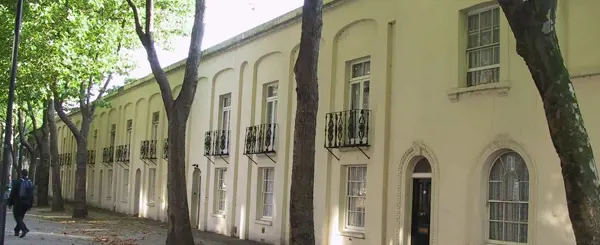Providing sufficient housing, especially genuinely affordable housing, is arguably one of the biggest challenges facing London. Increasingly, there is concern that the younger generation of talented professionals will be driven away from London, or avoid London from the outset, because the city is unable to deliver the significant level of homes required, leaving house prices and rents sky high. In June 2016, the average price of a property in the UK was £213,9271, compared to London where this was over double, at £472,0002.
This leaves no doubt as to why home ownership in London is becoming an increasingly unrealistic aspiration for many younger professionals – something which may mean businesses find it challenging to recruit and retain the people they need to grow and prosper. In this vein, Cambridge has been crowned the best UK city to work in, whilst London did not even make the top 20 due to the high cost of living and the competitive job market. Towns and cities such as Nottingham, Leeds and Reading however ranked third, fourth and seventh retrospectively, due to their competitive salaries and job prospects, combined with a significantly lower cost of living3.
London needs to address the lack of housing and in particular the lack of affordable housing as a matter of priority in order to remain attractive to young professionals and even established professionals alike. However, more worryingly, whilst affordability (or ‘unaffordability’) was once a London-focused issue, there is evidence to suggest the crisis is spreading across the UK, with Manchester and other larger northern cities at the forefront. Recent Local Government Association (LGA) research 4 suggests that even if the UK achieved full employment by 2024, around four million people would still need access to some level of affordable housing.
Londoners may be fortunate in that the relatively new Mayor, Sadiq Khan, has made it clear from the outset that building more homes is a top priority for him. In particular, a 50% affordable housing push was Khan’s headline policy during his campaign to City Hall.
Khan has now been Mayor of London for around 4 months and whilst Brexit has undoubtedly made his start a challenging one, what have we seen from him so far and how could his intentions help London and Londoners?
Khan’s initial pledge was that all new housing developments should provide at least 50% of homes which are ‘affordable’ – this pledge however has quickly become a “long-term strategic target” as Khan looks to calm fears that this would make schemes unviable. Now, a lower percentage of 35% seems more likely. It is anticipated that draft supplementary planning guidance will be issued this autumn to provide policy detail that addresses the issue of viability and that includes a benchmark for developers to ensure 35% of homes in new developments are affordable. However, is a 35% target anything ground breaking? A number of London Boroughs, such as Hillingdon, Hounslow and Croydon (amongst many more), already have 35%, 40% and 50% targets in place (respectively).
Despite this, Khan’s commitment to boosting the supply of housing is clear. The Mayor recently released the first details of his plans to set up a 'Homes for Londoners' team at City Hall to oversee homebuilding in the capital, tasked with seeking to boost the delivery of new and affordable housing. To assist, Khan is recruiting experts to scrutinise viability assessments. Khan will also lead a new 'Homes for Londoners' Board, comprising developers, housing associations and London Boroughs. This Board will oversee the delivery of housing, land assembly and investment decisions, and will draw on expertise from across both the housing and property sectors to help develop new policy for London.
Khan has also recently given the go-ahead to Transport for London (TfL) to sell sites at considerably lower than market value in order to assist in improving the viability of schemes, in the hope of driving up the ability of developers to provide a higher number of affordable homes. However, whether this ‘saving’ will actually be seen through to an increased level of affordable homes is something which we will have to wait to find out.
Whilst Khan has clearly made a positive start as Mayor of London, moving forwards, what can we expect from him in relation to housing delivery? Given the uncertain economic backdrop, it will be more important than ever that viable and commercially deliverable housing schemes are prioritised. Despite the uncertainty surrounding Brexit, Khan may be fortunate in that, whilst politically opposed, the relatively new Prime Minister, Theresa May, has also made clear that housing growth and the delivery of affordable housing, are amongst her key priorities, building towards what she is promoting as a ‘one nation vision’ and ‘social justice’. This political will is something which Khan will need to harness in a bid to assist with his own agenda of boosting housing supply. The two opposing politicians will therefore have to work in tandem to achieve increased housing delivery in London, something which they both state is a key priority, in a pragmatic and delivery-focussed manner to assist in developing a strategy for the housing crisis facing a great many people wanting and needing to live in London.
The capital has a real opportunity to be at the forefront of developing initiatives to overcome unaffordability that could lead the way for other UK towns and cities. Other cities may therefore have a lot to learn from London, but not yet.

